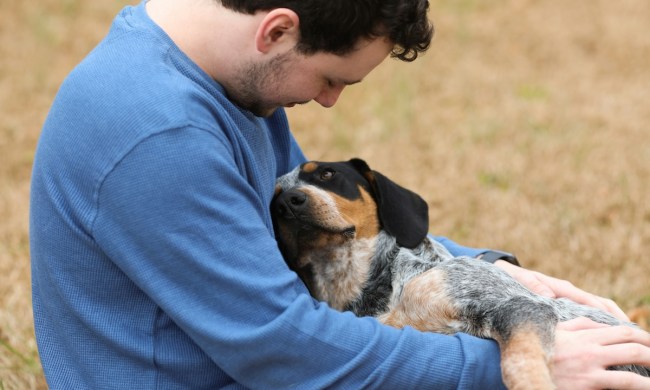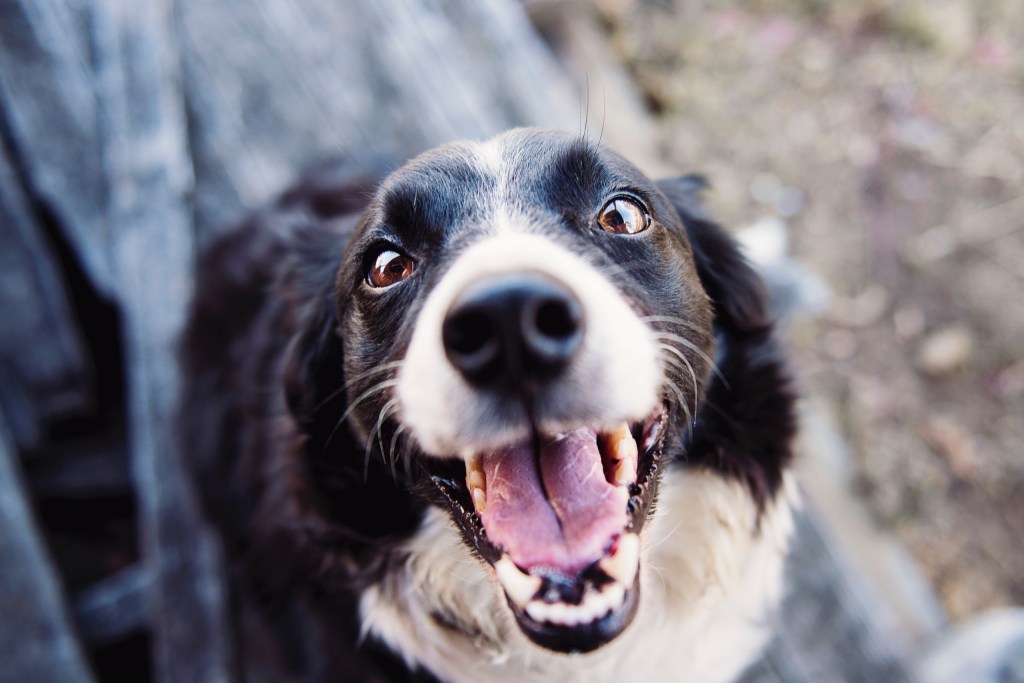
You love your dog more than anything, and always want to do what’s best for your four-legged friend. As dogs age, there’s a lot pet parents can do to ensure their pup’s golden years are as healthy and happy as possible. If you’ve noticed your animal is missing a few of their chompers, you might be wondering: Do dogs lose teeth?
While it’s natural for puppies to lose their teeth as their adult ones come in, this is a sign of concern in older dogs. Here’s what you need to know.
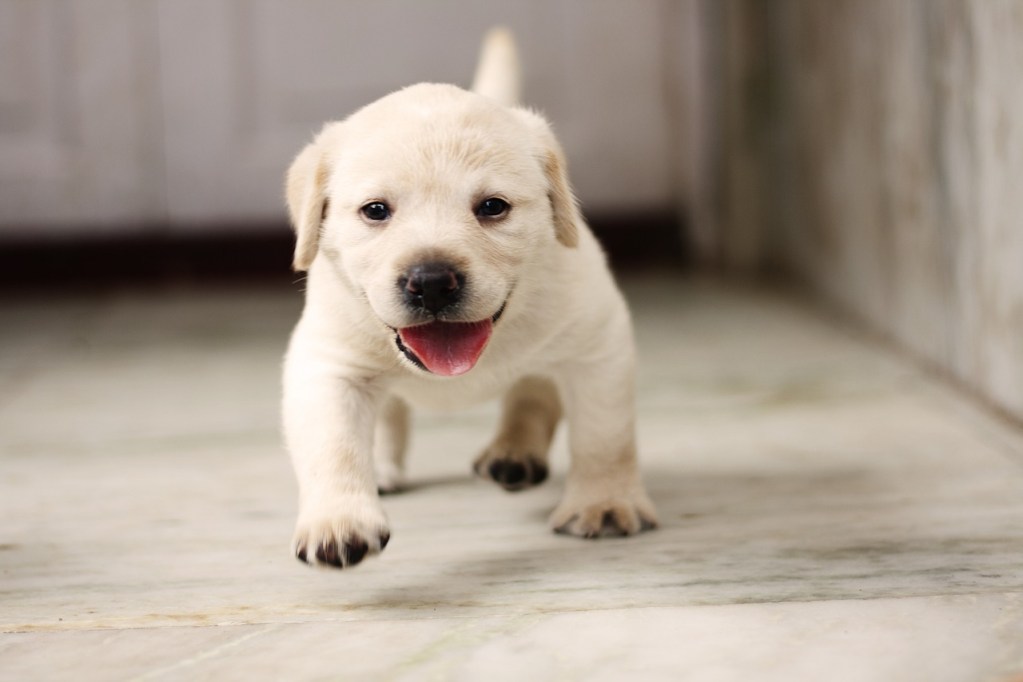
Your puppy losing their teeth is totally normal
Your puppy’s deciduous teeth (also known as baby teeth) start coming in when they’re roughly three to six weeks old and fall out naturally as their adult teeth come in. Many puppies swallow their teeth, which won’t harm them in any way, but others lose them while eating and playing. When your puppy reaches the teething stage at around three to four months old, you’ll probably want to hide your favorite shoes. By the time your fur baby is seven months old, they’ll have their adult dog teeth.
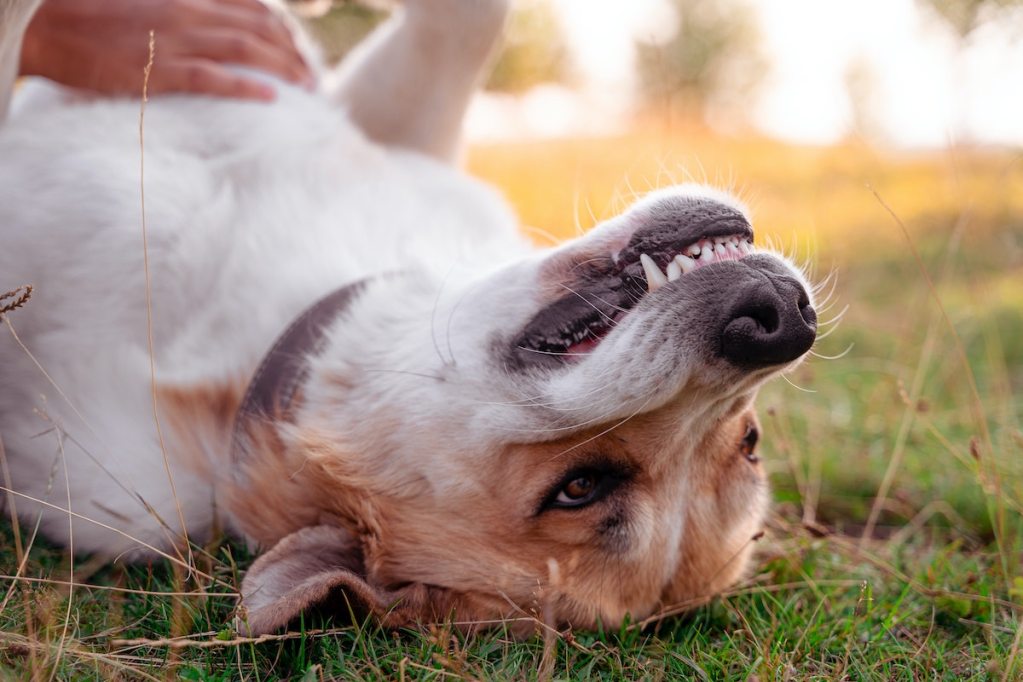
What causes tooth loss in adult dogs?
While an adorably gap-toothed grin is perfectly fine for a teething puppy, it isn’t a normal occurrence in adult dogs. If you have an adult dog with missing teeth or breath reminiscent of an open dumpster on a hot day, it’s time to learn a bit more about why your dog might be having dental issues — and figure out you need to take a trip to the vet, or better yet, consider a dog dental insurance plan.
The two primary causes for tooth loss in adult dogs are trauma and periodontal disease.
Trauma
Trauma can occur in a variety of ways. If your pet has been involved in an accident, it can cause dental problems that lead to tooth loss. But even less serious issues can cause dental problems. Hard treats such as bones and antlers may cause damage to teeth that eventually fall out.
Fights with other dogs can not only cause tooth loss, but can also severely damage delicate gums. Even overly enthusiastic playtime with another dog can dislodge a tooth or two if your dog is hit in the mouth.
Periodontal disease
Roughly 85% of adult dogs have signs of dental disease, which can have major complications if left untreated. Periodontal disease, or gum disease, is another leading cause of tooth loss in adult dogs, and because so many dogs have it, it’s essential that you catch it early on.
While you can’t reverse periodontal disease, you can treat it and prevent it from worsening. If it’s left unchecked, periodontal disease can cause a host of health complications for your dog:
- Lost teeth can impact your dog’s ability to eat food
- Untreated gum disease can cause a lot of pain
- Dogs can develop behavioral problems as a result of their new circumstances
- Untreated gum disease increases the chances of diabetes, heart disease, and cancer
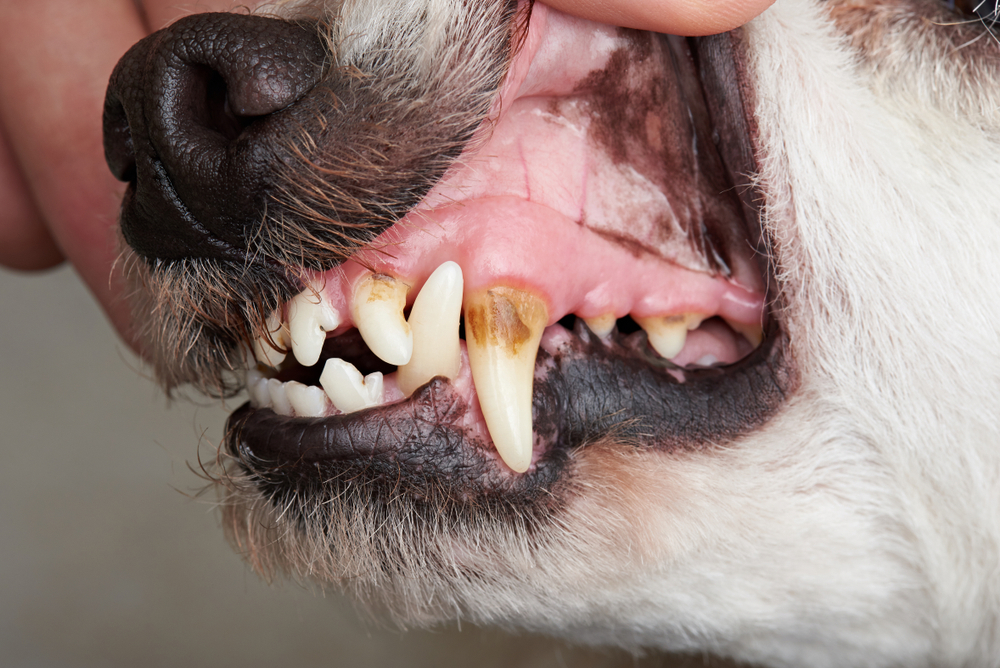
What to do if a dog loses a tooth?
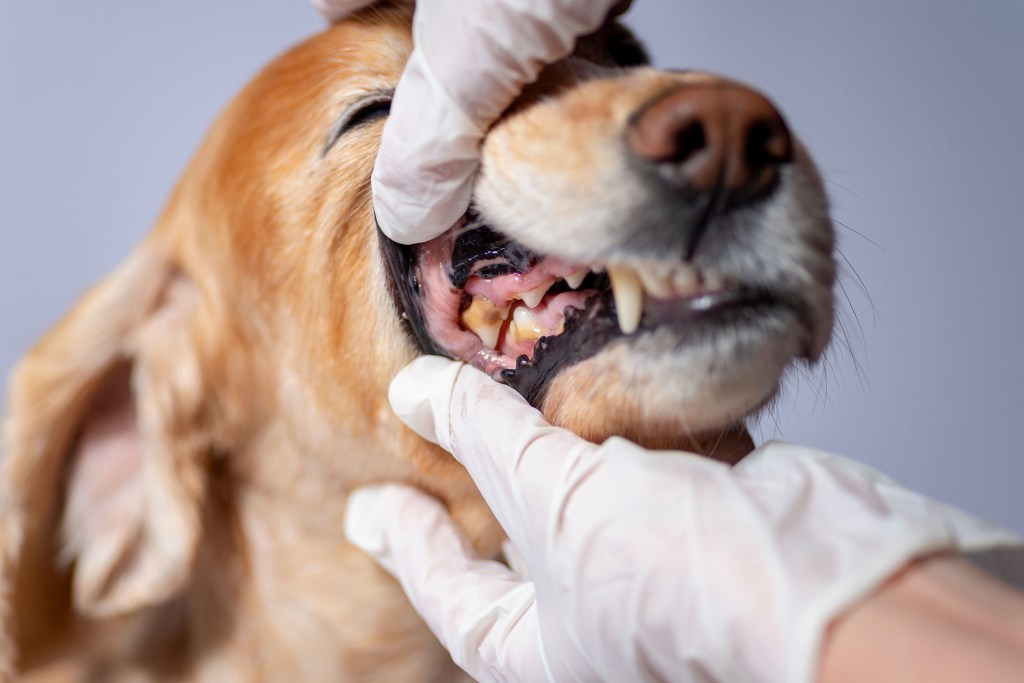
Signs of gum disease in dogs
Even if your dog doesn’t have missing teeth yet, there are warning signs. Here’s what to look out for to determine whether you should take your dog to the vet:
- Loss of appetite or difficulty chewing
- Excessive pawing at the mouth or rubbing the mouth against objects
- Loose teeth
- Bad breath
- Lethargy
- Swelling around the mouth
- Bumps or discoloration on the gums
- Bleeding or swollen gums
- Behavioral changes
Periodontal disease begins as an accumulation of food particles and bacteria at the gum line. As time progresses, what started out as plaque and tartar buildup becomes inflammation deep within the gums. Over time, the inflammation causes the gum tissue — and in severe cases, the jawbone — to deteriorate, which results in tooth loss.
Catching periodontal disease before it progresses is best for your dog’s dental health. Still, treatment is possible even if your dog has already suffered tooth loss.
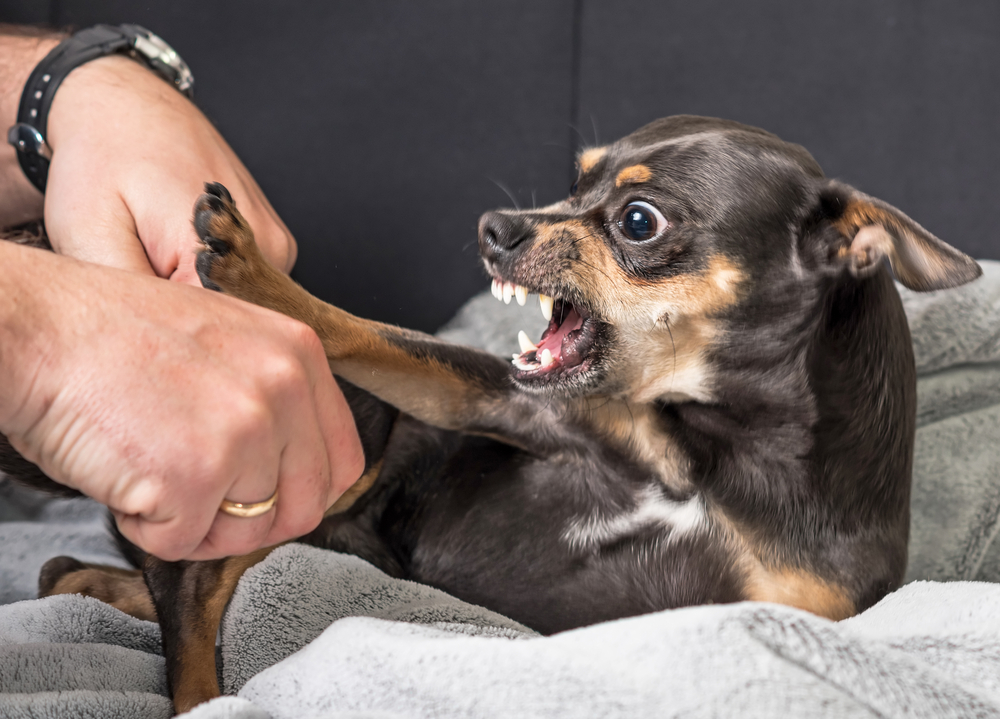
Treating gum disease in dogs
Just like you need regular checkups and deep cleanings at the dentist, your dog’s teeth need maintenance, too. Your veterinarian will take a series of X-rays to determine the severity of your dog’s periodontal disease and come up with a plan of action.
If in-depth treatment is required, your vet will put your dog under anesthesia to perform a deep cleaning and scaling, which removes plaque and tartar from each tooth as well as pockets of bacteria from beneath the gum line.
After treatment, maintaining your dog’s dental hygiene can help prevent a recurrence of bacterial growth. Brushing your dog’s teeth daily, plaque and tartar-fighting dental chews, and regular checkups will help keep your dog’s mouth in good shape for years to come.
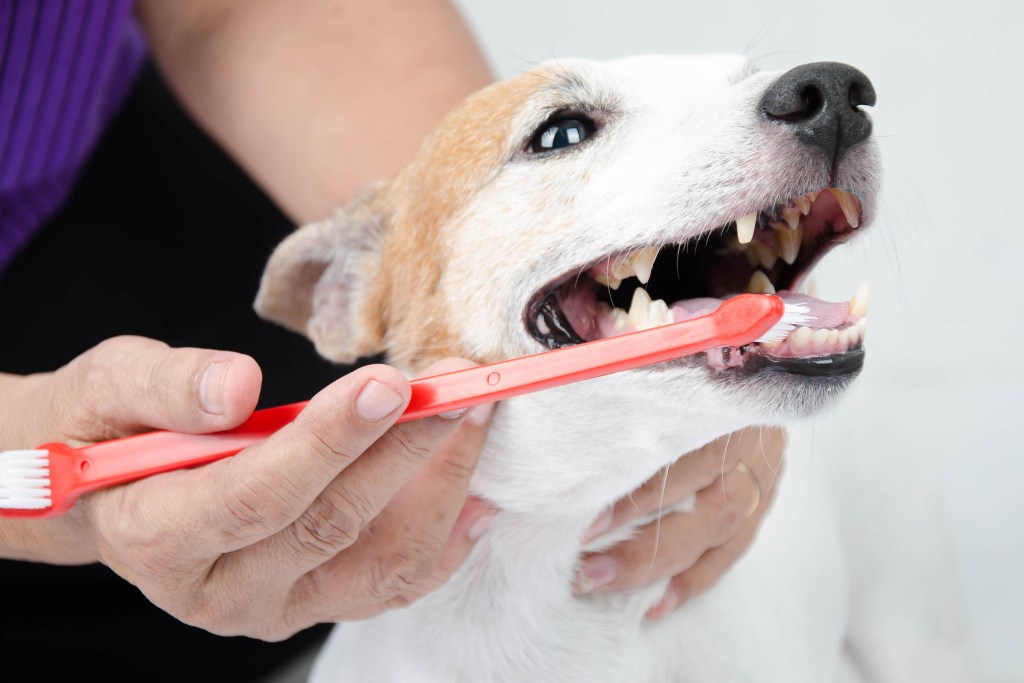
Preventing dental issues in dogs
Your dog needs good dental hygiene, just like you do. The best way to protect your dog from tooth loss is to prevent gum disease in the first place:
- Brush your dog’s teeth with toothpaste and a toothbrush that’s designed for dogs. While the bristles of a dog toothbrush are better at loosening up plaque and preventing tartar buildup, using your finger is a suitable alternative if your dog tucks their tail and hides at the sight of a toothbrush.
- Try specially formulated foods that are designed to combat the accumulation of plaque and tartar.
- Make sure your dog has routine dental checkups with their vet.
Preventing plaque and tartar buildup is paramount to your dog’s dental health, as buildup is one of the leading causes of periodontal disease. But if you clean your dog’s teeth regularly and still notice signs of tooth loss, there could be an underlying issue. Understand the cause of your dog’s tooth loss and involve their vet as soon as possible.
